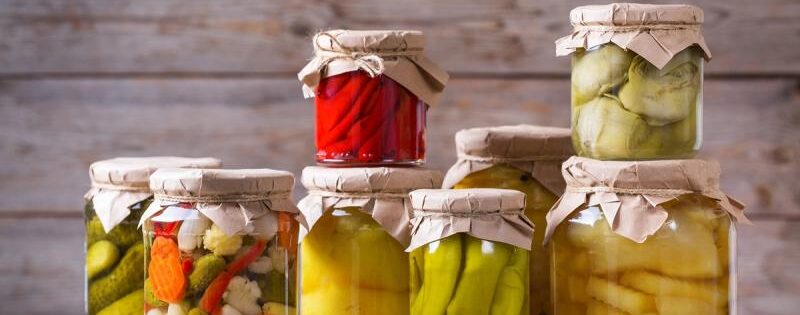Preservatives Used in Food Industry:
Food preservatives are substances added to food products to inhibit the growth of microorganisms, prevent spoilage and extend shelf-life. Food preservatives can be classified into two main categories: natural and synthetic. Natural preservatives are derived from plants, animals or microorganisms, such as salt, sugar, vinegar, spices, herbs or bacteriocins. Synthetic preservatives are chemically synthesized or modified from natural sources, such as benzoic acid, sorbic acid, sulphites or nitrites.
In this blog, we will explore some of the advanced preservatives used in food industry and how they can improve food quality and safety.
Benzoic Acid and Its Salts
Benzoic acid and its salts (such as sodium benzoate or potassium benzoate) are widely used food preservatives suitable for acidic foods. Benzoic acid is naturally present in some fruits (such as cranberries) and spices (such as cinnamon). Benzoic acid and its salts can inhibit the growth of yeasts, moulds and some bacteria by lowering the pH and interfering with their metabolism. Benzoic acid and its salts are often used in combination with sorbic acid or other preservatives to enhance their effectiveness. Benzoic acid and its salts are commonly used in beverages, fruit juices, jams, pickles, sauces and confectionery.
Sorbic Acid and Its Salts
Sorbic acid and its salts (such as sodium sorbate or potassium sorbate) are another widely used food preservatives suitable for acidic foods. Sorbic acid is naturally present in some fruits (such as rowan berries) and cheese (such as Roquefort). Sorbic acid and its salts can inhibit the growth of moulds and yeasts by affecting their cell membrane permeability and enzyme activity. Sorbic acid and its salts are often used in combination with benzoic acid or other preservatives to enhance their effectiveness. Sorbic acid and its salts are commonly used in cheese, bread, cakes, wine, beer, cider and dried fruits.
Sulphites and Sulphur Dioxide
Sulphites and sulphur dioxide are widely used food preservatives that have both antimicrobial and antioxidant properties. Sulphur dioxide is a gas that can be dissolved in water or other liquids to form sulphites (such as sodium sulphite or potassium metabisulphite). Sulphites and sulphur dioxide can inhibit the growth of bacteria, yeasts and moulds by disrupting their cellular functions and DNA synthesis. Sulphites and sulphur dioxide can also prevent enzymatic browning, oxidation and rancidity of food products by scavenging oxygen and free radicals. Sulphites and sulphur dioxide are commonly used in fruit juices, wines, dried fruits, meat products, seafood products and potato products.
Nitrites and Nitrates
Nitrites and nitrates are widely used food preservatives that have both antimicrobial and colour-fixing properties. Nitrites (such as sodium nitrite or potassium nitrite) are usually added to meat products to inhibit the growth of Clostridium botulinum, a bacterium that causes botulism. Nitrites also react with myoglobin (a protein in meat) to form nitrosomyoglobin, a pigment that gives meat products a pink colour. Nitrates (such as sodium nitrate or potassium nitrate) are usually added to cured meat products to provide a reservoir of nitrites during storage. Nitrates also have antioxidant effects by inhibiting lipid oxidation. Nitrites and nitrates are commonly used in bacon, ham, salami, sausages and corned beef.
Citric Acid
Citric acid is a natural preservative that is found in citrus fruits. Citric acid is widely used in carbonated drinks and as an acidifier of foods. Citric acid can lower the pH of food products and enhance the activity of other preservatives. Citric acid can also chelate metal ions that can catalyse oxidation reactions. Citric acid can also inhibit the growth of thermophilic bacteria by affecting their membrane stability. Citric acid is commonly used in beverages, jams, jellies, candies, sauces and canned fruits


